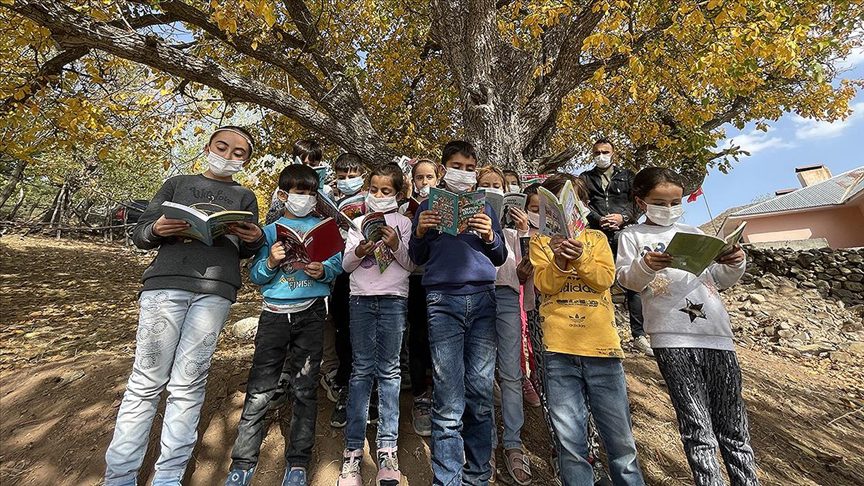Last month, the rate of coronavirus patients aged 19 and under in Turkey reached 35%, according to Health Ministry figures.
The majority of them were between the ages of 10 and 19, while 6% of them were babies and children up to age 9.
Associate professor Afşin Emre Kayıpmaz, a member of the Ministry’s Coronavirus Scientific Advisory Board, warned families to have their eligible children – those aged 12 and above – vaccinated to reduce infection risk and curb the pandemic.
Vaccination is not mandatory in Turkey, but the vaccination program was recently expanded to people aged 15 and above while children between the ages of 12 and 15 are eligible if they have a chronic disease.
The first wave of deadly COVID-19 cases in Turkey was among the elderly, and the early fatalities were mainly senior citizens. Kayıpmaz said the coronavirus can affect anyone from infants to older children. “Infections are more prevalent now as a result of variants. This new situation increases the number of cases among children and youth who are involved in education, spend more time in social environments and have higher mobility,” Kayıpmaz told Anadolu Agency (AA) on Tuesday.
He said some infections among the youth and children were “bad enough” to hospitalize them and fatalities, though rare, were also reported. “They usually suffer from a mild form of COVID-19 but it is not entirely true that the children and the youth are not infected at all. It would be a mistake to spare them from protective mask, social distancing and hygiene rules by believing that they would not fall ill. Neglecting those measures can propel the risk of the virus spreading further in society,” he warned.
Kayıpmaz also warned about children and youth spreading infections to adults while themselves are asymptomatic or suffering from a mild case.
“Theirs are mostly mild cases as the majority of them do not have a chronic disease and/or their bodies are more resistant to the virus. It is a different case for children with chronic diseases and weaker immunity. They are at risk as high as adults,” he said.
He noted that children had a far lower vaccination rate and this worsened the situation, especially in terms of “household infections,” referring to clusters of cases in the same family. “Parents should get vaccinated as soon as possible and if they have children ineligible for inoculation, they should take measures to keep them protected, teaching them to adhere to measures,” he said.
Though it faced a surge in the number of daily COVID-19 cases, Turkey opted to reopen its schools for in-person education in an effort to save millions of children from lack of education that was compromised due to the pandemic. The majority of teachers are vaccinated, while schools adhere to strict pandemic measures, including mandatory masks for students and regularly disinfecting school premises.
Still, virus cases are reported at some schools. Instead of shutting down the entire school, authorities close only the classroom where the case or cases are reported and they are reopened after the end of quarantine for infected students, teachers and those who came into contact with them. Kayıpmaz said this was necessary to not hamper the education of children, a matter as vital as public health.
“We have to adjust our lives to the pandemic whose end is uncertain now,” he said, recommending adherence to vaccination and other measures instead of bringing back restrictions.

